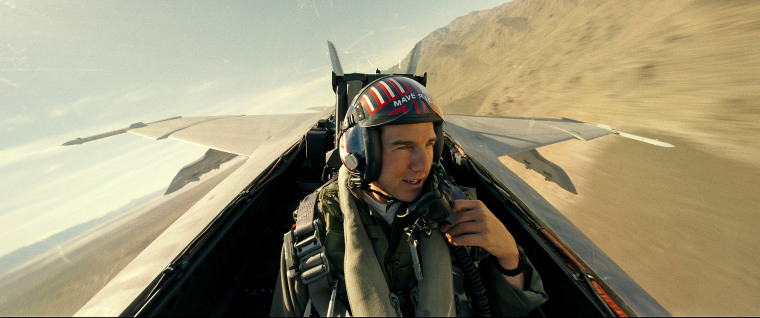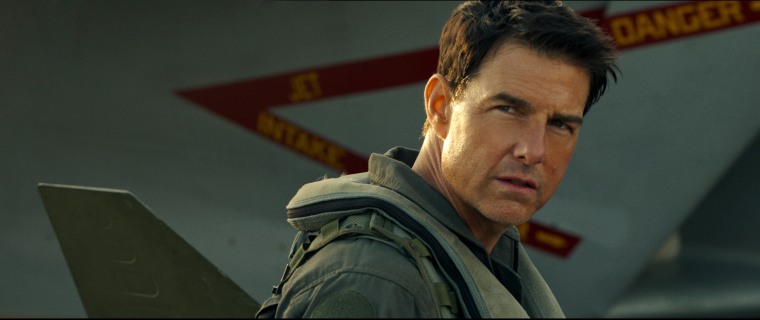After 36 years, the sequel to the Tom Cruise movie classic “Top Gun” is a critical and commercial success, earning $248 million at the global box office on its opening weekend. In Taiwan, it’s also being celebrated for another reason: not pandering to China.
In 2019, the trailer for “Top Gun: Maverick” showed Cruise’s character, U.S. Navy pilot Pete Mitchell, in the same bomber jacket he wore in the original film. But two of its flag patches — representing Japan and the Republic of China, the official name for Taiwan — appeared to have been replaced by other emblems.
The move was criticized at the time as an act of self-censorship to please China’s censors. Beijing sees Taiwan, a self-ruling democracy of 24 million people, as an inalienable part of its territory and lashes out at any reference to it as a sovereign nation.
On the film’s release last month after a two-year pandemic delay, both flags had been restored. At an advance screening in Taipei, the audience broke out in cheers and applause at the sight of the Taiwanese flag on the big screen, local news outlet SETN reported.
The Paramount Pictures film has broken box office records in Taiwan, raking in over 100 million Taiwan dollars ($3.4 million) in its opening week.
Taiwanese moviegoers said they were heartened by the flag’s appearance.
“The R.O.C. flag has always been suppressed by China all over the world. Of course it is both surprising and a joy to see the R.O.C. flag in a Hollywood blockbuster,” Rex Hsu, a software engineer from Taoyuan, told NBC News. “I sincerely hope the world can see more of the R.O.C. flag, so that we are not isolated from this world.”
Download the NBC News app for breaking news and politics
Hollywood frequently abides by Beijing’s sensitivities to gain access to and reap profits from the lucrative Chinese market. Last year, “Fast & Furious” actor John Cena apologized profusely in Mandarin to his Chinese fans for calling Taiwan a country during a publicity tour for the latest film in the franchise.
Experts say the inclusion of the Taiwanese flag in “Top Gun: Maverick” may suggest a shift in Hollywood away from its culture of deference to China’s red lines.
“There have been several recent instances of big-budget U.S. films not getting into the Chinese market. Studios are aware of this and are making business decisions,” said Aynne Kokas, an associate professor of media studies at the University of Virginia and author of “Hollywood Made in China.”

Hollywood blockbusters including the Marvel films “Eternals” and “Shang-Chi and the Legend of the Ten Rings” have been kept from Chinese screens after directors or actors involved in the films made comments critical of China.
The Chinese tech giant Tencent had said in 2019 that it was investing in the “Top Gun” sequel; it later pulled out over concerns that its support for a film with strong pro-U.S. military themes would anger officials in the ruling Communist Party, The Wall Street Journal reported last week, citing people familiar with the financing.
NBC News has requested comment from Paramount Pictures as well as Tencent offices in China, where it was a public holiday on Friday, and Los Angeles.
With “Top Gun: Maverick” not expected to be released in mainland China, filmmakers had greater flexibility in decision-making, Kokas said.
“Particularly for a film like ‘Top Gun: Maverick,’ a tribute to the U.S. military released in time for the Memorial Day holiday in the U.S., there is a clear incentive to play to the film’s most reliable audience constituencies,” she said, “and it appears to have paid off financially.”
